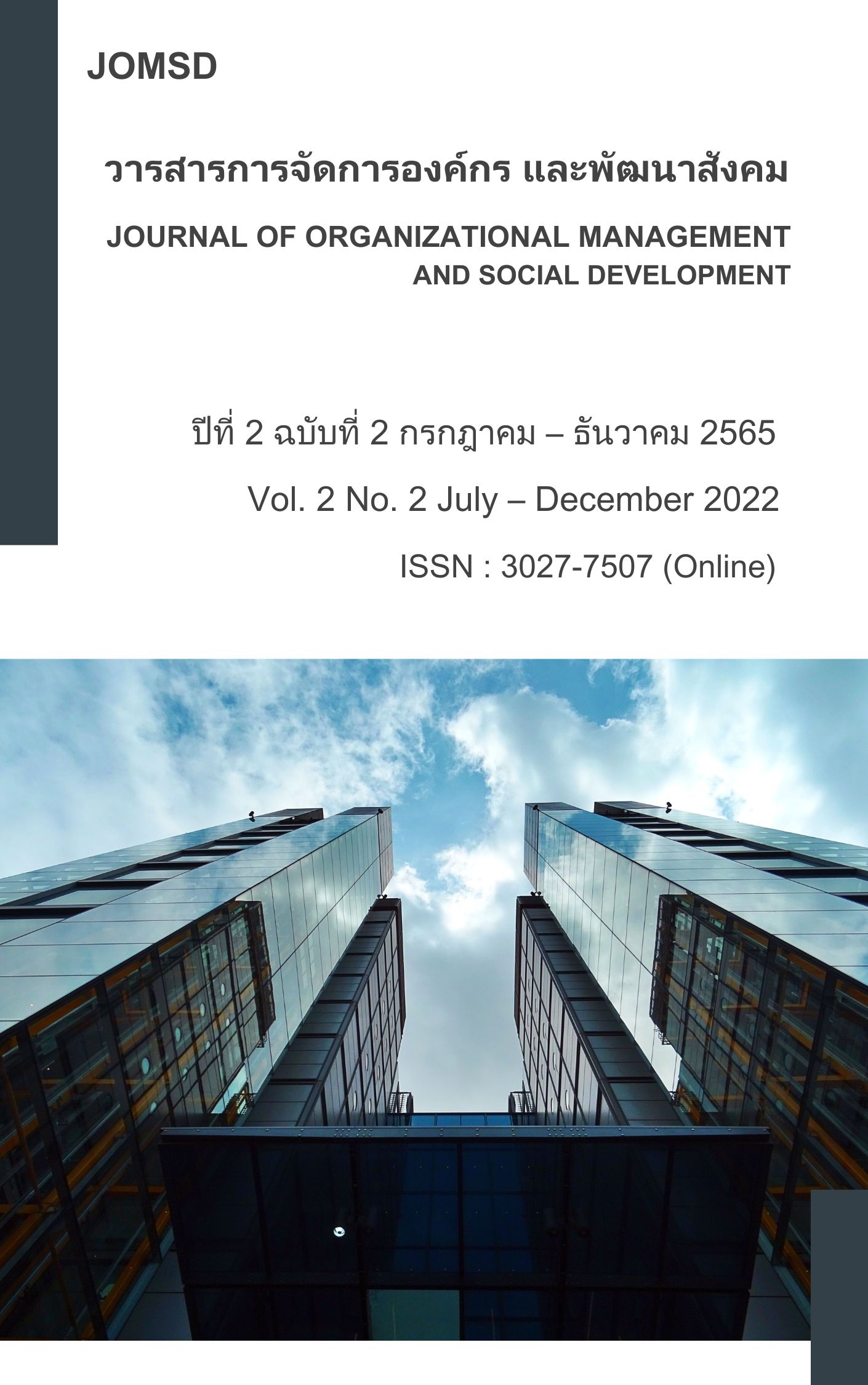Supreme Court Appeal Law Against Plaintiffs Under the Surrogacy Act in Thailand
Main Article Content
Abstract
The Human Rights Act, or the rules, conventions, and various international agreements on human rights that all countries around the world have ratified in order to convey the ideology of the rulers that point out that applying the principles of Buddhist teachings to govern Deciding the legal problems of the people and the country often uses Buddhist principles without using heavy punishment, but using a misdemeanor punishment Through teachings about hell and heaven to help create fear, to see the consequences of committing that offense Equality and equality among people in the community will be achieved without any class discrimination whatsoever or the people of the world are aware of justice according to Buddhism. It will further promote those societies that are filled with happiness and tranquility Due to the belief in the results of karma it is also a reflection of the good tradition that treats human rights laws towards the daily living of the people.
Article Details
References
กุลพล พลวัน. (2543). สิทธิมนุษยชนในสังคมไทย. กรุงเทพฯ: ห้างหุ้นส่วนจํากัดภาพพิมพ์.
จรัญ โฆษณานันท์. (2545). สิทธิมนุษยชนไร้พรมแดน ปรัชญา กฎหมาย และความเป็นจริงทางสังคม. กรุงเทพฯ: สํานักพิมพ์นิติธรรม.
ชะวัชชัย ภาติณธุ. (2548). กระบวนการเรียนรู้และปฏิบัติการณ์สิทธิมนุษยชน. กรุงเทพฯ: โอเดียนสโตร์.
ธเนศ อาภรณ์สุวรรณ. (2549). ความเป็นมาของทฤษฎี "แบ่งแยกดินแดนในภาคใต้ไทย". กรุงเทพฯ: โครงการเอเชียตะวันออกเฉียงใต้ศึกษา คณะศิลปศาสตร์ มหาวิทยาลัยธรรมศาสตร์.
บรรเจิด สิงคะเนติ. (2558). หลักพื้นฐานเกี่ยวกับสิทธิเสรีภาพและศักดิ์ศรีความเป็นมนุษย์. (พิมพ์ครั้งที่ 5). กรุงเทพฯ: สำนักพิมพ์วิญญูชน.
มานะ สิมมา. (2566). พ.ร.บ. อุ้มหาย สิทธิมนุษยชน. สืบค้นจาก https://www.nationtv.tv/politic/378918274.
วรพจน์ วิศรุตพิชญ์. (2543). สิทธิและเสรีภาพตามรัฐธรรมนูญแห่งราชอาณาจักรไทย พุทธศักราช 2540. (พิมพ์ครั้งที่ 2). กรุงเทพฯ: สํานักพิมพ์วิญญูชน.
สํานักงานคณะกรรมการสิทธิมนุษยชนแห่งชาติ. (2554). หลักกฎหมายระหว่างประเทศทั่วไปเกี่ยวกับสนธิสัญญาด้านสิทธิมนุษยชน. กรุงเทพฯ: บริษัท สหมิตรพริ๊นติ้ง.
อุดม รัฐอมฤต และคณะ. (2544). การอ้างศักดิ์ศรีความเป็นมนุษย์หรือใช้สิทธิและเสรีภาพของบุคคลตาม มาตรา 28 ของรัฐธรรมนูญแห่งราชอาณาจักรไทย พุทธศักราช 2540. กรุงเทพฯ: ห้างหุ้นส่วนจํากัด นานา สิ่งพิมพ์.
Carlin, J. E., Howard, J., & Messinger, S. L. (1966). Civil Justice and the Poor-Issues for Sociological Research. Law and Society Review, 1, 9-90.
Caterina Gouvis Roman, Gretchen E. Moore, Susan Jenkins, & Kevonne M. Small. (2002). Understanding community justice partnerships: Assessing the capacity to partner. Washington, DC: Urban Institute, Justice Policy Center.
Feinberg, J. (1986). Offense to others: The moral limits of the criminal law, Vol. 2. Law and Philosophy, 5(1), 113-120.
Karp, D. R., & Clear, T. R. (2000). Community justice: A conceptual framework. Criminal justice, 2(2), 323-368.
McCold, P. & Washtel, T. (1996). Restorative justice and the role of community. In B. Galaway & J.Hudson (Eds.), Restorative Justice: International Perspectives (pp. 85-101). Monsey, NY: Criminal Justice Press.
Mill, J. S. (1970). The Subjection of Women. Cambridge: M.I.T Press.
Rawls, John B. (1971). A Theory of Justice. Cambridge: MA, Harvard University Press.
United Nations Human Rights Council. (2018). Office of the high commissioner, what are human rights. Geneva: United Nations Human Rights Council.

